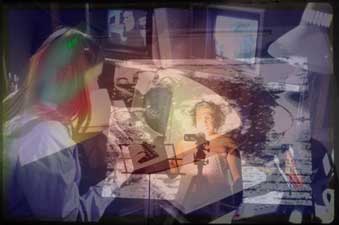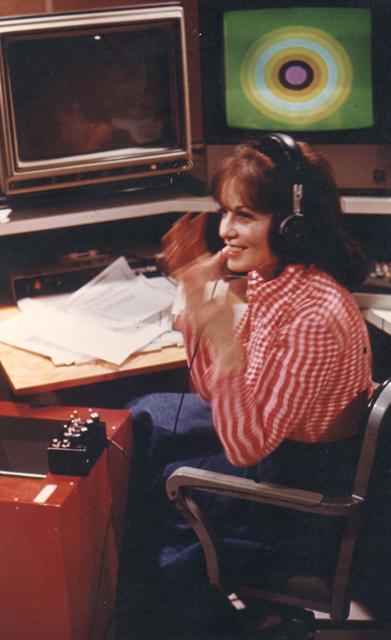Bruce Burgett, the CSA president, asked CSA members to contribute to the plenary by responding to this prompt:
Cultural Studies should…
Cultural Studies is…
Cultural Studies could…
I approached this with my own idiosyncratic biography, anxieties, and hopes in mind.
Special Sections
Special sections published within or across issues.
Undisciplined
Cultural studies should be a political act against the institutionalizing processes of becoming disciplined
Q3C
Cultural Studies would, could, should, must, will, and does begin queerly in the middle of things.
Queer
Creative
Critical
Compositionism
Academic
Cultural studies should be a deliberate site of sustained and sustainable struggle.
Cultural Studies Should Gamify
I’ve created GamifytheCSA.org, an experiment in gamifying the academic conference. Gamifying the CSA will enhance serious play in discourse and practice and expand the scope of the conference, with models in business and social networking with programs such as FourSquare, and extending to health and fitness, with programs such as Zombies, Run!, and the list goes on.
Spontaneous Acts of Scholarly Combustion
The future of academic publishing, as well as its ability to create and sustain publics, rests upon its willingness to take up the protection, maximum use, and enjoyment of “personal energy under personal control. This will also mean understanding that the other critical term here, in addition to freedom, is responsibility. Someone, or some distributive collectives of someones, which might also form a nomadic para-institution, or “outstitution,” needs to take responsibility for securing this freedom for the greatest number of persons possible who want to participate in intellectual-cultural life. A publisher is a person, or a group, or a multiplicity, who is responsible.
Queering the Archive
This CSA plenary talk discusses a performance based on oral histories collected in the author’s book, ‘Sweet Tea: Black Gay Men of the South—An Oral History’
PNAP Talk
This plenary talk discusses the author’s experience working with a college in prison program at Stateville Prison in Illinois.
La Perrouque
Intended for la perruque, Michel de Certeau’s modern-day proletariat, this is a user’s manual that critically examines the intricacies of the academic employment process, from the interview to the chicaneries that one endures during his at-will tenure. And so, this manifesto is not only a creative, autobiographical account of how I have so far tactically revolted or “made do” and am surviving the prodding and churning of the machine, it also is one of many portraits that collectively paint an encouraging picture of human resistance.
Critical Purchase in Neoliberal Times
‘Critical Purchase in Neoliberal Times’ is an edited conversation with Ien Ang and three members of the Cultural Studies Praxis Collective (CSPC): Miriam Bartha, Bruce Burgett, and Ron Krabill. The transcript of the conversation conducted at the University of Washington was reworked and revised by the interlocutors. The document as a whole surfaces and addresses a series of questions about engaged and community-based forms of cultural studies scholarship; multiculturalism, cosmopolitanism, and media policy; and the future of the transnational field of cultural studies in the context of the neoliberal turn in global higher education.
Introduction: In Search of Digital Feminisms
Edited by Katherine Behar and Silvia Ruzanka, In Search of Digital Feminisms includes five essays and the editors’ introduction that suggests we play with the shift from surfing to searching to what is fast becoming the offer, if not the intrusion, of piles of unrequested information. But In Search of Digital Feminisms is not an exercise in melancholia, longing for better digital days now past or for lost feminist horizons. It is a search, having already arrived at a destination, a before and an after all at once, the lost origin that always points to the work of an originary mediation or modulation, if not digitization. In other words, these are not anti-technology works; these are works seeking rather to find ways to creativity and multiplicity in identity and practice that can be an intervention into the contemporary scenes of feminisms and the digital. Although primarily offered as texts, the works that follow point to the need to make theoretical interventions a matter of practices, a matter of interactive mediation, a doing, if not a doing with others.
Ungoogleable: In Search of Digital Feminisms
We begin our search for digital feminisms with the following terms: an acknowledgment that “search” represents an ambition which must fail. Siri’s failed searches only scratch at the surface that Siri is.
“Up for Grabs”: Agency, Praxis, and the Politics of Early Digital Art
In its infancy, digital art was, as artist and writer Anne M. Spalter enthusiastically put it, “up for grabs.” But how did women artists overcome the fallacy that computer technology was inherently masculine? And why did computing become a kind of sanctuary for some women artists? I will show that the indeterminacy and flux that permitted freer agency, was reflected in the computing field as a whole. Over time, anti-computer sentiment, which affected all artists using the medium, would prove so pervasive that it often eclipsed the sexism later suffered by women.
In Search of Digital Feminisms: Digital Gender & Aesthetic Technology
What is it that influences girls’ choices of new technology? How is digital creativity affected by gender norms? “Digital Gender & Aesthetic Technology” aims to make visible females as creative developers of the Internet and new technology, through interviews with students, artists, project managers, and entrepreneurs. The prevailing social norms appear to be reflected on the Internet as “digital gender norms,” where girls and boys prefer apparently different communication tools. While working with the question of “digital gender,” I have developed the hypothesis of “Aesthetic Technology,” namely that girls often have an artistic approach towards technology. Girls mainly learn technology for a personal reason, planning to create something once they have learned the technique, and their goal often have aesthetic preferences. The question of girls “becoming technical,” is more complicated than one might first think, in relation to gender. Even though young girls are often just as interested in technology as young boys are, it is difficult for them to keep or adapt their technical interest to normative femininity in their teens. Another problem is that expressions of technical competence or innovation, which do not correspond to the predominant male norm, might be hard to recognize. Females who study within the field of creative digital technology often begin their career by struggling with questions of equality, instead of just practicing their profession.
BOT I
“BOT I” is a radical monologic mash-up of autobiographical material from Pilar’s childhood in a computing family and her passions for and against technology, cut in and through the texts of Samuel Beckett’s “Not I” and Isaac Asimov’s I Robot. This article includes the script of the performance Pilar presented at the Radical Philosophy Association Conference in Eugene, Oregon on November 13, 2010 and images from a 2011 performance. Ruthless in its refusal of all gentility and tact, and insistent in its feminist critique, Pilar’s script reveals the blind spots that capitalist techno-culture reserves for ethics and the body.



